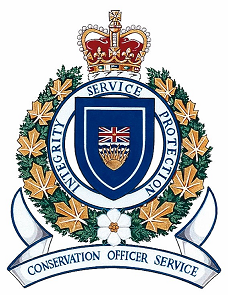Stop the spread of invasive mussels

Pull the plug! It’s the law in B.C.
It is illegal to transport watercraft (including boats, kayaks, canoes and paddle boards), water-related equipment or aircraft on land, unless all drainage holes, valves or other devices used to drain water are left open or unplugged.
- Alternatively, a boat can be transported in an inverted manner if it allows the interior of the boat to be drained. This includes draining any ballast tanks, bilge areas or compartments
Why is this important? While B.C. is currently free of invasive mussels, Whirling Disease has been detected in B.C.
- To help stop the spread of whirling disease and invasive mussels before moving a boat or any equipment between water bodies, be sure to Clean, Drain, Dry
Services and information topics
Invasive Mussel Defence Program
The B.C. Invasive Mussel Defence program’s goal is to prevent the introduction of zebra, quagga and golden mussels into B.C. The program’s prevention efforts are focused on inspecting boats, monitoring lakes, educating the public and coordinating actions with neighbouring jurisdictions.
Information on the disposal of moss balls
Zebra mussels have been found in many kinds of moss ball products, which are used for aquaria or water gardens. Some moss balls that contained zebra mussels were found in B.C. These moss balls, which are often sold as “Marimo Moss Balls”, are species of green algae typically used to improve water quality in aquaria. Moss balls can also be purchased online.
Bringing your boat to B.C.
If you’re bringing your boat from out-of-province, contact the provincial program at COS.Aquatic.Invasive.Species@gov.bc.ca to determine if your boat is high risk and should be decontaminated for possible zebra, quagga or golden mussels before launching it in B.C. waters.
B.C. watercraft inspection stations
If you are transporting a watercraft in B.C. you must stop and report to all invasive mussel watercraft inspection stations along your travel route. Watercraft includes sailboats, motorboats, car toppers, kayaks, canoes and paddle boards being transported in B.C. The B.C. Conservation Officer Service has a team of specialized inspectors checking and if necessary decontaminating watercraft being transported into B.C.
Clean, Drain, Dry
All watercraft launching into B.C. waters are encouraged to follow the Clean, Drain, Dry approach to prevent the spread of aquatic invasive species in B.C., including zebra, quagga and golden mussels. Inspect, clean, drain and dry all gear and boats following use. When leaving a waterbody, remove any visible plants and animals from your gear and boat.
Early detection lake monitoring
Monitoring lake waters is critical to detect any presence of invasive species in B.C. It is an important first step in the Provincial Early Detection Rapid Response (EDRR) plan.
Zebra, quagga and golden mussel facts
Zebra mussels, quagga mussels and golden mussels are not native to North America and pose a serious threat to B.C.’s aquatic ecosystems, salmon populations, hydro power stations and other infrastructure facilities.

